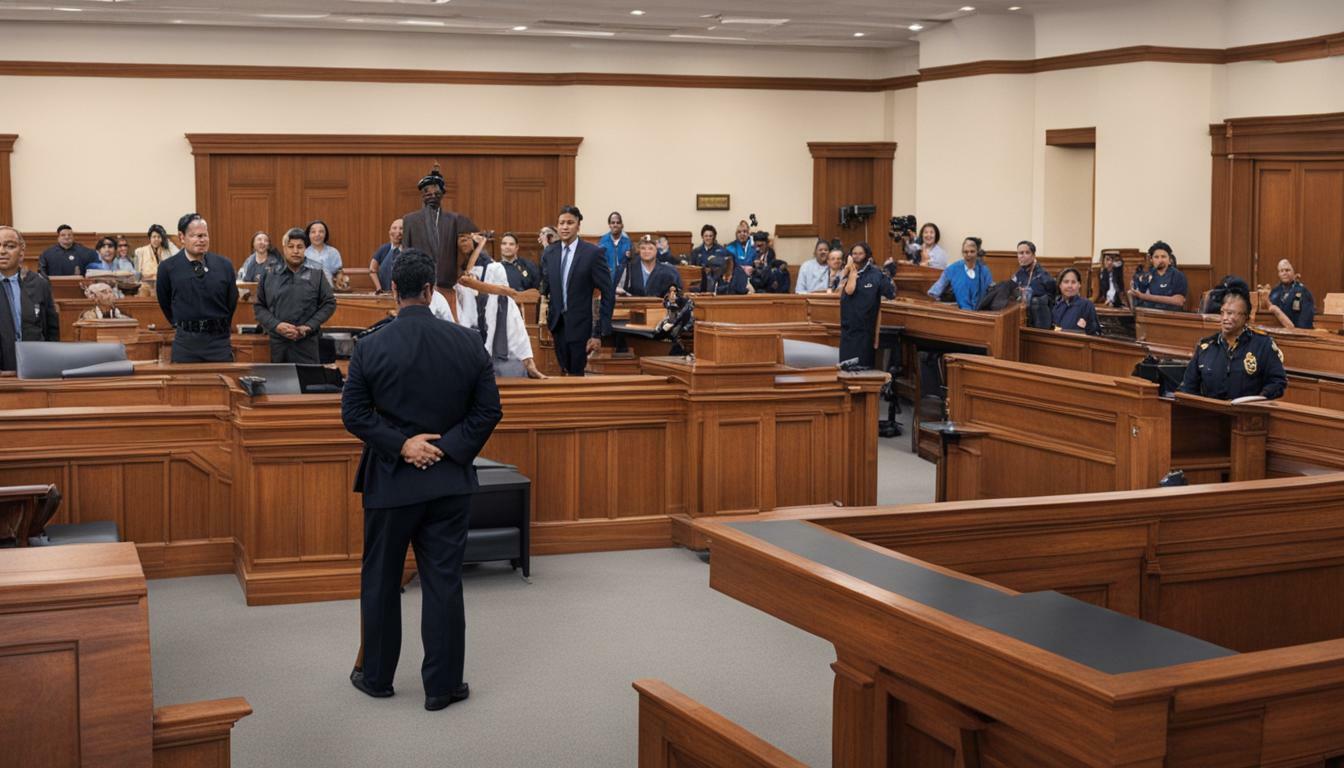Ignoring a subpoena in Hawaii can have significant consequences, including legal penalties. A subpoena is a legal document that requires a person to testify or produce documents in a court proceeding. Failure to comply with a subpoena can be deemed criminal contempt of court, which may result in fines or even imprisonment.
When served with a subpoena, it is crucial to carefully read the document and understand the instructions. The subpoena should be issued by the clerk of the circuit court and clearly state the court’s name and the title of the action. It is important to contact the phone number provided on the subpoena to confirm the date, time, and location of the scheduled court appearance.
In Hawaii, subpoenas can be served by the sheriff, deputy sheriff, or any other person who is not a party to the case and is at least 18 years old. The person named in the subpoena must be delivered a copy, and the fees for one day’s attendance and mileage must be paid. It is essential to comply with the requirements of the subpoena, as failure to obey may result in contempt of court.
In a specific case involving Kahea, an organization opposed to the construction of an astronomical observatory on Mauna Kea, the Attorney General issued a subpoena to obtain bank records. Kahea argued that the subpoena was retaliatory harassment for their advocacy and moved to quash it. The court disallowed some requests in the subpoena but allowed others related to investigating the organization’s compliance with financial reporting requirements and potential misuse of tax-exempt status. However, the court expressed concerns and limited the scope of the subpoena.
- Ignoring a subpoena in Hawaii can lead to legal penalties, including fines and imprisonment.
- A subpoena is a legal document that requires a person to testify or produce documents in a court proceeding.
- It is important to carefully read and comply with the instructions on the subpoena.
- Contact the provided phone number to confirm the court appearance details.
- Service of a subpoena can be done by the sheriff, deputy sheriff, or any other qualified person.
- Failing to obey a subpoena may result in contempt of court.
Subpoenas in Hawaii and Legal Requirements
Subpoenas in Hawaii are legal orders that require individuals to testify or provide evidence in court proceedings. When served with a subpoena, it is essential to understand the legal requirements and responsibilities associated with it. Failure to comply with a subpoena may result in serious consequences, including being held in contempt of court.
To ensure compliance, it is crucial to read the subpoena carefully and contact the provided phone number for any questions or concerns. It is recommended to confirm the date, time, and location of the scheduled court appearance at least one day before. The subpoena should be issued by the clerk of the circuit court and include the court’s name and the title of the action.
Subpoenas can be served by the sheriff, deputy sheriff, or any person who is not a party to the case and is at least 18 years old. The individual serving the subpoena must provide a copy to the person named and pay the required fees for attendance and mileage. Failure to obey a subpoena may lead to contempt of court charges.
In a specific case involving Kahea, an organization opposed to the construction of an astronomical observatory on Mauna Kea, the Attorney General issued a subpoena to obtain bank records. Kahea challenged the subpoena, alleging it was retaliatory harassment for their advocacy. The court allowed certain requests in the subpoena pertaining to investigating financial reporting requirements and potential misuse of tax-exempt status. However, the court expressed concerns and limited the scope of the subpoena.
Subpoena Requirements and Compliance
To ensure compliance with a subpoena in Hawaii, individuals must adhere to the legal requirements and obligations set forth by the court. It is important to remember that a subpoena is a serious legal document that demands cooperation in the judicial process. By fulfilling these obligations, individuals can avoid potential penalties and contempt of court charges.
| Legal Requirements for Subpoenas in Hawaii | Compliance Guidelines |
|---|---|
| A subpoena must be issued by the clerk of the circuit court. | Read the subpoena carefully and verify the issuing court’s name. |
| Subpoenas can be served by the sheriff, deputy sheriff, or an eligible person. | Ensure the subpoena is delivered by a qualified individual who is not a party to the case. |
| Failure to obey a subpoena may lead to contempt of court charges. | Comply with the subpoena by testifying or providing the requested evidence. |
By understanding and fulfilling the legal requirements associated with subpoenas in Hawaii, individuals can navigate the judicial process effectively. It is crucial to consult with legal counsel if there are any doubts or concerns regarding a subpoena. Remember to approach subpoenas with the seriousness they deserve, as they play a vital role in ensuring justice and fair proceedings in the court system.

Failure to comply with a subpoena in Hawaii can be deemed criminal contempt of court and may result in penalties. A subpoena is a legal document that requires an individual to testify or produce specific documents as evidence in a court case. It is important to take subpoenas seriously and respond promptly to avoid legal consequences.
When served with a subpoena, read it carefully and pay close attention to the date, time, and location of the scheduled court appearance. Contact the phone number provided in the subpoena if you have any questions or need clarification. It is recommended to confirm the details of the subpoena the day before to ensure you are prepared.
In Hawaii, subpoenas must be issued by the clerk of the circuit court and should clearly state the court’s name and the title of the action. They can be served by the sheriff, deputy sheriff, or any other person who is not a party and is at least 18 years old. The person named in the subpoena must be delivered a copy, and the issuer is responsible for paying the fees for one day’s attendance and mileage.
Failure to obey a subpoena can have serious consequences, including being held in contempt of court. Contempt of court is a legal term that refers to willful disobedience or disrespect towards the authority or dignity of a court. Penalties for contempt of court in Hawaii can include fines, imprisonment, or both. It is important to comply with subpoenas and cooperate with the legal process to avoid these potential penalties.
Case Study: Kahea and the Subpoena Decision
“In a specific case involving Kahea, an organization opposed to the construction of an astronomical observatory on Mauna Kea, the Attorney General issued a subpoena to obtain bank records. Kahea moved to quash the subpoena, claiming it was retaliatory harassment for their advocacy. The court disallowed some requests in the subpoena but allowed others related to investigating the organization’s compliance with financial reporting requirements and potential misuse of tax-exempt status. However, the court expressed concerns and limited the scope of the subpoena.”
This case highlights the importance of understanding and complying with subpoenas in Hawaii. While the court recognized Kahea’s concerns, it also acknowledged the need to investigate potential violations related to financial matters. It is crucial for individuals and organizations to navigate the legal process carefully and seek appropriate legal counsel if they have concerns or questions regarding subpoenas.
| Potential Consequences | Penalties |
|---|---|
| Criminal Contempt of Court | Fines, imprisonment, or both |
| Disallowed Requests | Subpoena modifications, scope limitations |
| Allowed Requests | Investigation into compliance with financial reporting requirements and potential misuse of tax-exempt status |
In summary, ignoring subpoenas in Hawaii can have serious consequences. Failure to comply can result in criminal contempt of court and potential penalties. It is crucial to respond to subpoenas promptly, read them carefully, and seek legal advice if needed. Understanding the legal requirements and potential penalties can help individuals and organizations navigate the subpoena process effectively.
Image: 
Kahea’s Subpoena Case and Court Decision
In a notable case involving Kahea, the Attorney General issued a subpoena in Hawaii to obtain bank records, leading to a court decision on the organization’s compliance and potential penalties. The Attorney General sought these records to investigate Kahea’s financial reporting requirements and potential misuse of tax-exempt status.
Kahea, an organization opposed to the construction of an astronomical observatory on Mauna Kea, moved to quash the subpoena, claiming it was retaliatory harassment for their advocacy efforts. The court carefully considered Kahea’s arguments and made a decision regarding the scope of the subpoena.
The court disallowed some requests in the subpoena, recognizing Kahea’s concerns about the infringing nature of these demands. However, other requests related to investigating the organization’s compliance with financial reporting requirements and potential misuse of tax-exempt status were allowed by the court.
The court’s decision emphasized the importance of balancing the need for information with the protection of individuals and organizations from overreaching subpoenas. It limited the scope of the subpoena to safeguard the rights and privacy of Kahea, while still allowing for an investigation into the matters at hand.
FAQ
Q: What can happen if I ignore a subpoena in Hawaii?
A: Ignoring a subpoena in Hawaii can result in being charged with criminal contempt of court.
Q: What does a subpoena require me to do?
A: A subpoena may require you to testify or produce documents as specified in the subpoena.
Q: What should I do if I receive a subpoena?
A: When served with a subpoena, it is important to read it carefully and contact the phone number provided for further information.
Q: How can I confirm the details of my court appearance?
A: It is recommended to confirm the date, time, and location of your scheduled court appearance the day before.
Q: Who can serve a subpoena in Hawaii?
A: Subpoenas can be served by the sheriff, deputy sheriff, or any other person who is not a party and is at least 18 years old.
Q: What should a subpoena include?
A: A subpoena should be issued by the clerk of the circuit court and state the court’s name and the title of the action.
Q: How much do I need to pay for a subpoena to be served?
A: Service of a subpoena requires delivering a copy to the person named and paying the fees for one day’s attendance and mileage.
Q: What happens if I don’t comply with a subpoena?
A: Failure to obey a subpoena may result in contempt of court.
Q: Can a subpoena be challenged?
A: Yes, in certain cases, a subpoena can be challenged or “quashed” by filing a motion with the court.
Q: What happened in the Kahea subpoena case?
A: In the Kahea subpoena case, the court disallowed some requests in the subpoena but allowed others related to investigating the organization’s compliance with financial reporting requirements and potential misuse of tax-exempt status.






